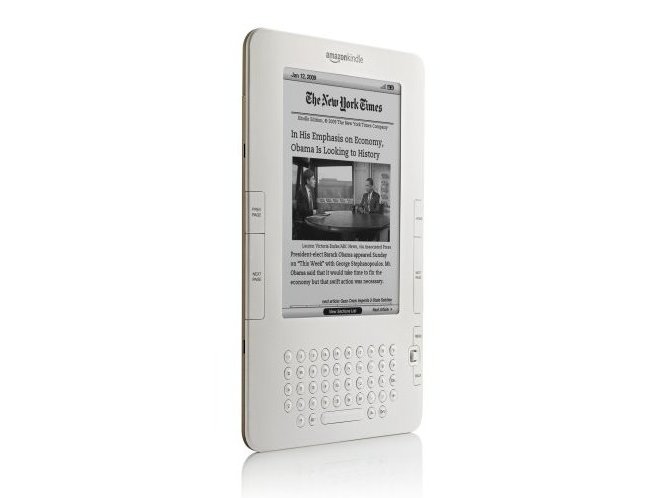Will eBooks replace the printed novel?
Kindle 2 launch prompts questions over the future of print

Sony's forthcoming eReader 2.0 and Amazon's latest version of its Kindle reader, which launches this week, are prompting questions from readers and publishing execs alike as to the future of the printed novel.
The Observer's literary editor, Robert McCrum polled a number of book publishing insiders to find out their thoughts on the future of the eBook and the printed novel.
"The answers I received strongly suggest that, although the sales of Kindles and Sony eReaders are statistically insignificant, the age of the ebook has arrived," claims McCrum.
"Book lovers traditionally express a sentimental attachment to ink and paper, fonts and bindings. The next generation seems to be developing a love affair with pixels. "For me", writes one book trade veteran, "it's the text that counts.""
Early adopters vs. traditionalists
A Penguin Books exec added: "I now download virtually all my submissions on to my eReader. In some cases, it means the script is never printed out. The agent emails it and I download it."
While there were plenty in McCrum's straw poll who were fairly dismissive of eReaders, it is telling that McCrum - one of the UK's leading literary editors on a national newspaper still declared, "that digital devices would probably make significant inroads into traditional book sales during the next five years.
Sign up for breaking news, reviews, opinion, top tech deals, and more.
"All the major publishers have now set up digital departments to prepare for a decisive shift in reading habits," notes McCrum, who notes that many in the publishing trade think that "the book is about to become engulfed by an "iPod moment" for literature, analogous to the transformation wrought on the music industry by the download revolution."
TechRadar has contacted Penguin and a number of other UK-based book publishers this week for further comment on the launch of Amazon's Kindle 2.0 and to find out more about their strategies for eBooks and eReaders in 2009 and beyond.
